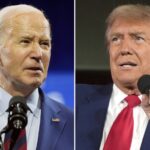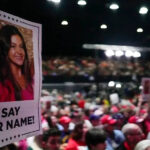In one of this term’s most anticipated decisions, the Supreme Court has handed a major win to multiple defendants prosecuted in relation to January 6th. In a 6-3 decision delivered by Chief Justice John Roberts, the Court held that: “To prove a violation of §1512(c)(2), the Government must establish that the defendant impaired the availability or integrity for use in an official proceeding of records, documents, objects, or other things used in an official proceeding, or attempted to do so.”
This holding reverses the D.C. Circuit, which had adopted a broader reading of the law in question to allow the charges against the defendant, Joseph Fischer, to go forward. The case will now return to the D.C. Circuit — which must assess whether the indictment holds up in light of this new and narrower interpretation.
At issue in the case was whether 18 U.S.C. § 1512(c), which prohibits obstruction of congressional inquiries and investigations, includes acts unrelated to investigations and evidence, such as, for instance, the certification of an election.
RELATED:
SO GOOD: During Oral Arguments, Justice Gorsuch Goes There
on January 6th Defendants and Jamaal Bowman
J6 Defendant Who Carried Confederate Flag to Be Released
Due to SCOTUS Case on DOJ’s Obstruction Charges
RedState’s Brittany Sheehan laid the case out well on the morning it was argued before the court in April:
The case centers on defendant Joseph Fischer’s challenge to the Justice Department’s charges of “corruptly” obstructing, influencing, or impeding a congressional proceeding on Jan. 6. Lawyers for Fischer argue that the statute used, passed by Congress in 2002 primarily for financial crimes, doesn’t apply to his actions during the Capitol incident. The government argues that Fischer’s actions disrupted Congress from fulfilling its Electoral Count Act duties.
The question before the justices is whether a provision of the Sarbanes-Oxley Act, enacted in the wake of the collapse of the energy giant Enron, covers the conduct of Fischer, a former police officer. The 2002 legislation was prompted by accounting fraud and document destruction. The provision is written broadly, and debates are centered on whether it should be interpreted widely or limited more narrowly.
…
The law has a two-part provision, and Fischer’s lawyers argue that the first part of the statute must inform the second part, meaning that, in their view, the alleged obstruction must be linked to destroying records or evidence.
The first part of the law criminalizes the act of corruptly altering, destroying, or concealing records to frustrate official proceedings. The second part — where the issue lies in Fischer — made it a crime to “otherwise” corruptly obstruct, influence, or impede any official proceeding.
As for the bigger picture:
The impending SCOTUS ruling potentially affects hundreds of individuals facing the use of this charge, carrying a maximum sentence of 20 years, per the U.S. attorney’s office in Washington. The law figures in two of the federal charges against Trump in his election interference case, and more than 350 people linked to the events of Jan. 6 at the Capitol have been prosecuted under it. If the Supreme Court sides with Fischer and says the statute does not cover his alleged conduct, Trump is almost certain to contend that it does not apply in his case, either.
This decision is sure to have far-reaching ramifications. Further reporting and analysis will follow.
For more up-to-date news on key court cases and legal analysis, please consider upgrading to a VIP account. VIP status will open a plethora of stories and podcasts here at RedState. And remember that a Gold-level account gets you access to all of our sister sites in Townhall Media: PJ Media, Twitchy, Hot Air, Bearing Arms, and Townhall.com. Today, we’re running a massive sale: Use promo code USA60 for a 60% discount.


